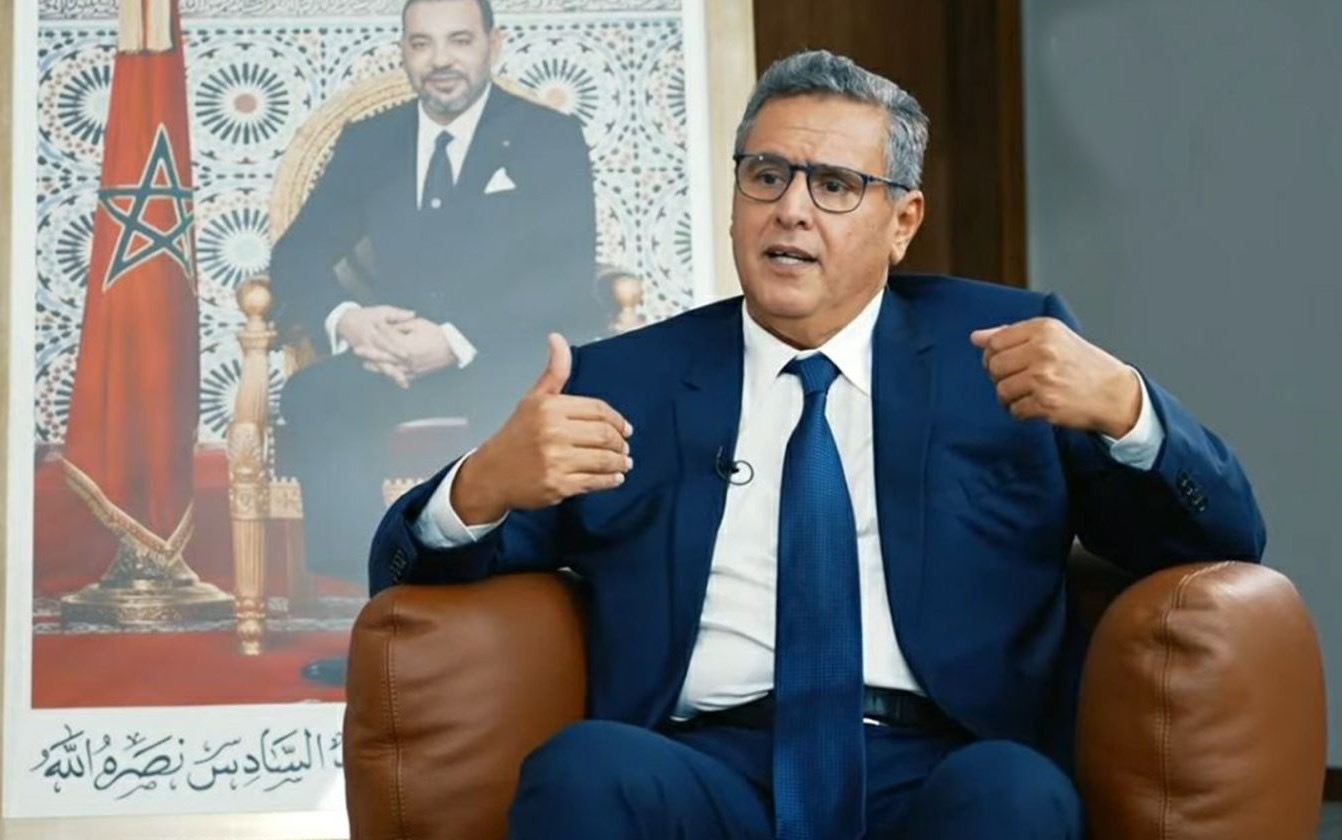In the midst of repeated discussions about the “social state” in Morocco following the 2021 elections, Mehdi Lahlou, an economic expert and professor at the National Institute of Statistics and Applied Economics, raises a fundamental question: Was the state not social before? During a political and intellectual meeting organized by the “Federation of the Left,” Lahlou highlighted stark contradictions between official rhetoric and economic reality. He pointed out that the new development model is a “stillborn creation” despite promises of achieving an annual growth rate of 6%.
Lahlou noted that the development model report is merely a rehash of the Fifty-Year Commission report, without any substantial additions. He sharply questioned the credibility of discussing a “social state” when the Prime Minister heads the administrative body of a major fuel company and is surrounded by ministers mostly linked to private sector businesses. “Are these individuals working for the country’s benefit or their own?” he asked bluntly.
According to the economic expert, a true social state ensures a minimum purchasing power and provides basic services, especially healthcare. However, the reality, as he describes it, is moving in the opposite direction: declining growth, falling national income, rising unemployment and inflation, and deteriorating citizens’ purchasing power. The greatest irony, according to him, lies in the massive spending on sports projects related to the World Cup while the economy suffers from successive crises.
Lahlou predicts that hosting the World Cup will cost 450 billion dirhams, warning that Morocco might face a fate similar to Greece after the 2004 Olympics or Brazil after the 2014 World Cup, where sporting celebrations turned into economic nightmares. He questioned the sources of funding for these mega-projects, their fate after the tournament, and whether they will leave behind economic, social, and even geopolitical crises.
Ultimately, the most pressing question remains: Is the “social state” merely a slogan raised in political speeches, or is it a genuine commitment to citizens? According to Lahlou, the answer lies in the numbers and facts that leave no room for doubt about the deep gap between promises and execution.
— News Original —
الدولة الاجتماعية أم وهم سياسي؟ خبير اقتصادي يفكك تناقضات الخطاب الرسمي لأخنوش
في خضم الحديث المتكرر عن “الدولة الاجتماعية” بالمغرب بعد انتخابات 2021، يطرح المهدي لحلو، الخبير الاقتصادي والأستاذ بالمعهد الوطني للإحصاء والاقتصاد التطبيقي، سؤالاً جوهرياً: هل كانت الدولة غير اجتماعية من قبل؟ خلال لقاء سياسي وفكري نظمته “فدرالية اليسار” اليوم، كشف لحلو عن تناقضات صارخة بين الخطاب الرسمي والواقع الاقتصادي، مشيراً إلى أن النموذج الجديد للتنمية “خلق ميتاً” رغم وعوده بتحقيق نمو سنوي بنسبة 6%.
أشار لحلو إلى أن تقرير النموذج التنموي ليس سوى إعادة صياغة لتقرير لجنة الخمسينية، دون أي إضافة جوهرية. وتساءل بحدة عن مصداقية الحديث عن “الدولة الاجتماعية” حين يكون رئيس الحكومة على رأس جهاز إداري لشركة محروقات كبرى، ومحاطاً بوزراء معظمهم مرتبطون بأعمال في القطاع الخاص. “هل يعمل هؤلاء لمصلحة البلاد أم لمصالحهم الخاصة؟”، يطرح السؤال بلا مواربة.
بحسب الخبير الاقتصادي، الدولة الاجتماعية الحقيقية هي التي تضمن حداً أدنى من القدرة الشرائية وتوفير الخدمات الأساسية، خاصة الصحية. لكن الواقع، كما يصفه، يسير في الاتجاه المعاكس: تراجع النمو، انخفاض الدخل الوطني، ارتفاع البطالة والتضخم، وتدهور القدرة الشرائية للمواطنين. المفارقة الأكبر، وفقاً له، تكمن في الإنفاق الضخم على المشاريع الرياضية المرتبطة بكأس العالم، بينما يعاني الاقتصاد من أزمات متلاحقة.
توقّع لحلو أن تصل تكلفة استضافة كأس العالم إلى 450 مليار درهم، محذراً من أن يُدفع المغرب إلى مصير مماثل لليونان بعد أولمبياد 2004، أو البرازيل بعد كأس العالم 2014، حيث تحولت الاحتفالات الرياضية إلى كوابيس اقتصادية. وتساءل عن مصادر تمويل هذه المشاريع العملاقة، ومصيرها بعد انتهاء البطولة، وما إذا كانت ستترك وراءها أزمات اقتصادية واجتماعية وحتى جيوسياسية.
ختاماً، يبقى السؤال الأكثر إلحاحاً: هل “الدولة الاجتماعية” مجرد شعار يُرفع في الخطابات السياسية، أم أنها التزام حقيقي تجاه المواطن؟ الإجابة، بحسب لحلو، تكمن في الأرقام والوقائع التي لا تترك مجالاً للشك في وجود فجوة عميقة بين الوعود والتنفيذ.
